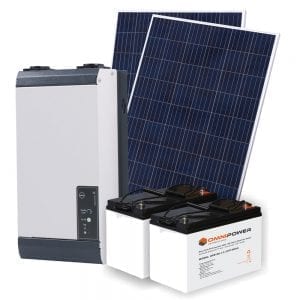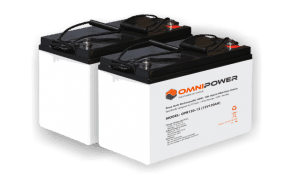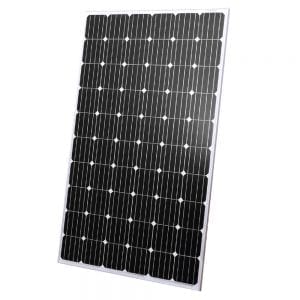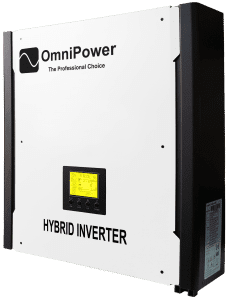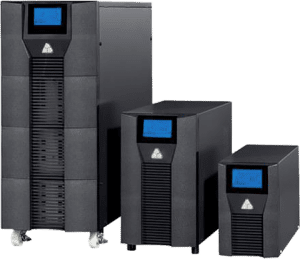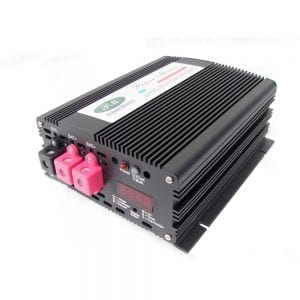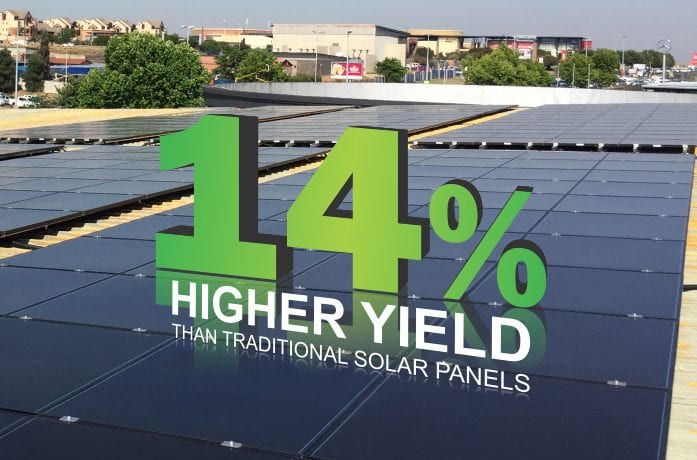Sinetech have long been proponents of CIGS (Copper Indium Gallium Selenide) solar panel technology, based on their experience with CIGS deployed alongside conventional mono- and polycrystalline panels at their Randburg facility.
This test facility was established to ascertain the performance of the various solar technology types in the Gauteng area under specific atmospheric conditions. These conditions are constantly measured by a comprehensive weather station and this data, together with the performance data of the three different technologies (ie. monocrystalline, polycrystalline and CIGS), is recorded by the management station.
Chris Rodgers, CEO of Sinetech, comments “We installed the test-bed just over 2 years ago really to ascertain solar module performance in local weather conditions. Naturally, we had to deploy the three technology types that we offer and within a short period of time, we noticed that the CIGS technology was outperforming the other two technologies. The only drawback at that stage of the CIGS technology, was that it required more roofspace to accommodate a 3kW system than the comparable mono or poly 3kW system.”
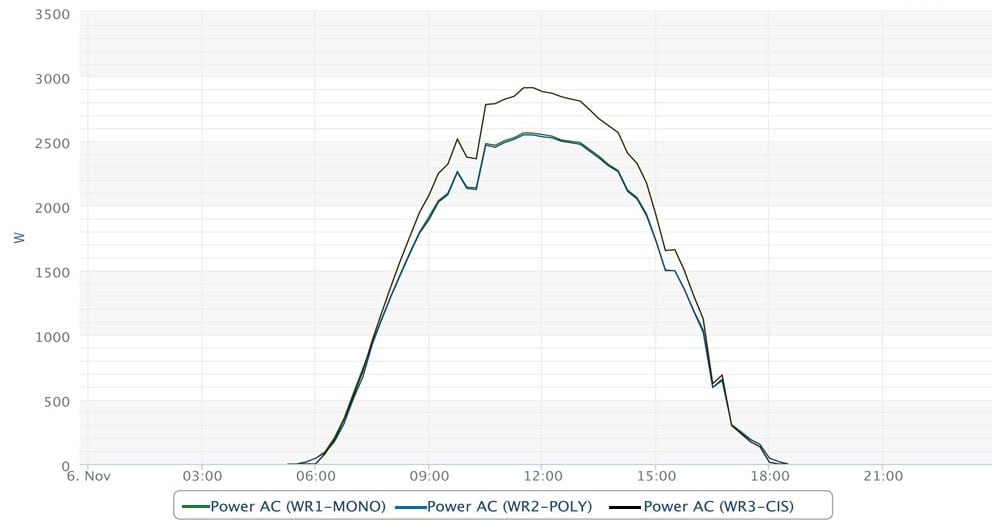
Actual Data depicting approximately 300W greater yield for a given day
Sinetech have for many years been distributors of the Solar Frontier SF range of CIGS modules; however, Solar Frontier recently withdrew from international markets to focus solely on their domestic Japanese market. CIGS technology has been in development since 1975 and for the first 30 years of its life, battled to compete with silicone-based solar panels from a performance perspective.
During the past five-years CIGS has seen significant performance growth whilst conventional silicone technology has been reaching a plateau. PERC (Passivated Emitter and Rear Cell) technology, one of the most recent enhancements in silicone module development, renders only roughly 1% more efficiency in performance. For clarity, efficiency is the cells’ ability to convert light into energy, anything in the low 20% range is considered very good today.
Rodgers continues “Efficiency is a bit of an academic number, as typically the numbers quoted are produced in lab conditions or are a snap-shot of optimum performance. The aspect that we should all be interested in is how much electricity our solar solution will yield over time. After all, we really only invest in solar to save money, save the planet or because we have no alternative source of electricity … but mostly to save money.
“Comparing our three 3kW systems in our test-bed, the CIGS system delivers a yield (total annual energy generated per kWp) of 13% more than the other two technologies. On the basis that the prices of the three technologies are more or less the same, the savings offered by the CIGS are thus 13% higher. This means a faster ROI which will make the CFO happy, and the reasons for this will make everyone happy. The greater yield achieved by the CIGS panels is attributable to the technology being more resilient to heat, so while the performance of silicone panels will degrade substantially on a hot day, the CIGS panels can endure higher temperatures with minimal performance loss. Additionally, the CIGS technology is much more resistant to shading or low light conditions and continues to make power where silicone panels cannot. Over time, this resilience adds up to a whopping 13% better yield.”
“We believe that there are many cases where CIGS technology makes optimum use of the customer’s investment, and this is why we remain committed to the technology. This is not to say that it is appropriate in all scenarios or that we will cease to offer silicone technology, however, we believe that each installation should be decided on its own individual merits. For this reason we have secured the agency for the Eterbright range of CIGS solar modules, which range from 100W right up to 350W, thus overcoming the additional space requirement issue. We have already installed the 335W modules into our test-bed some 3 months ago with excellent results” Rodgers concludes.
Read More about the Sinetech Rooftop Solar PV Panel and Weather Reference Station here:

